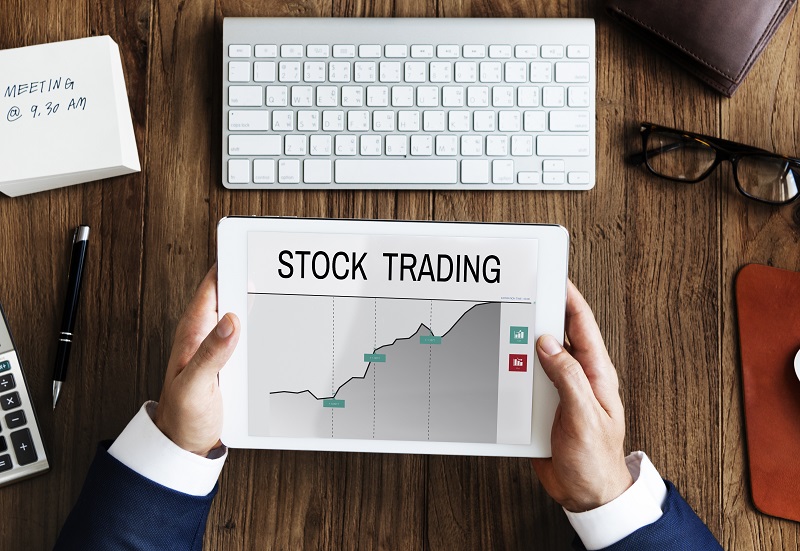Pros And Cons Of Stock Index Futures Trading
Stock index futures is a contract to purchase or sell a specific index for a specific price on a specific date. This may appear confusing, but it is a method of betting on the movement of a stock market index, and Understanding the stock market futures can help you advance in the stock market.
In this post, we will look at some index futures instances as well as the benefits and drawbacks of investing in index futures.
What Are Stock Index Futures?
Stock index futures are futures contracts that are based on a stock index. They are also known as equity index futures or simply index futures. Futures contracts are agreements between buyers and sellers to buy or sell the underlying asset’s value at a certain price on a specific date.
A Micro E-mini S&P 500 Futures (MES) contract, for example, is worth $5 per index point. Assume Jin sells one MES contract to Ady. The S&P 500 was trading at 4,100 on the contract date and closed at 4,101 on the settlement date. Thus, it may have moved far more than one point between the contract and settlement dates, but Ady owes Jin $5 on the settlement day.
Index futures, on the other hand, are not delivered on the expiration date, but rather are settled in cash on a daily basis, which implies that investors and traders pay or collect the difference in value on a daily basis.
Furthermore, index futures can be utilized for betting on how the index or market will move, or by investors wanting to hedge their position against potential future losses and know the Advantages of stock market futures investing here.
How Do Stock Index Futures Investing Work?
Futures contracts on stock indices are similar to other futures contracts, although they are more active than typical stock market securities. The fundamental distinction is that index futures are derivatives that allow investors to profit from fluctuations in the price of an underlying asset or index.
Stock market index futures are assets whose prices fluctuate throughout the trading day. However, the stock market’s constant liquidity and volatility enable investors and traders to profit from stock price swings, and index futures investing in various types of contracts is a proven technique to do so.
Your futures broker can assist you in buying or selling positions in stock futures contracts, which have an expiration date, so you must buy or sell booked holdings by that date or before. Furthermore, after the contract expires, the trader can settle in cash based on the value of the underlying asset or index.
How To Trade And Settle Stock Market Index Futures?
Index futures are comparable to other futures contracts in that the underlying asset is a stock index in this case. Like any other futures contract, there is an agreement to pay a given price on a specific date, and it is strictly a cash-settled transaction because it is not possible to physically deliver an index, with daily mark-to-market settlements.
The futures contract for index futures can be made with a buy or sell order, and it is exchanged on the stock exchange through a future broker. When a buy order is placed on a futures contract, a long position can be taken, and when a sell order is placed, a short position can be established.
Furthermore, as with any other futures contract, a minimum amount known as the initial margin is required to acquire the position, and a maintenance margin is also set, which means the value must not go below a specific point or else a margin call would be launched. You will subsequently be required to deposit monies in order to meet this margin.
Pros and Cons of Stock Index Futures Investing
Pros of stock market index futures
The advantages of index futures are cost and speculation potential.
- Speculation potential – With index futures, you can bet on future stock prices and give them greater power because you have access to securities trading in highly regulated marketplaces 24 hours a day, seven days a week. Furthermore, you are not need to hold any of the stocks in the index that the futures contract represents.
- Cost to trade – When you buy index futures contracts, you pay a lot less than the indicated price for the equities in the index that the futures contract tracks. For instance, $248,000 would be required to invest in a fund that tracks the S&P 500 Index at a share price of $2,480. You’d pay a lot less if you bought one S&P 500 futures contract (or 100 index shares).
Cons Of Stock Index Futures
The main disadvantage of trading in index futures is all about high risk and the necessity of holding cash.
- Leverage risk – The high risk of purchasing and selling these contracts is one downside of index futures investing, as it is simple to get highly leveraged and lose your entire investment when market conditions go against you.
- Margins – When trading index futures, there is one critical consideration: you must hold funds in a margin account with a brokerage firm. If you do not keep up with your margin account, your broker will contact you to replenish it. This is known as a margin call, and if you don’t have enough money to maintain your margin account full, you run the risk of swiftly incurring significant debt levels to fund the account.
Uses of stock index futures
Stock market index futures investing is a derivative-based strategy that allows you to spend less and benefit more. In addition to this, there are two ways to use index futures.
1. Speculation
The futures contract allows traders to speculate on the future direction of an underlying asset or index, which simply implies that you don’t have to purchase or sell futures contracts and may instead gamble on a group of assets by speculating on a bullish or bearish market.
2. Hedging
Many traders utilize stock futures contracts for hedging in order to mitigate losses caused by excessive stock price movements. When stock prices fall, investors with a stock portfolio begin selling futures contracts to mitigate prospective losses.
Takeaway
Index futures are a popular way to invest in a certain economic sector without purchasing shares in the companies that make up the sector. Index futures allow you to trade entire indexes’ worth of stocks for much less, so it can be a profitable way to invest if you enjoy trading and have the risk tolerance to deal with the prospect of losses.
FAQs
1. What exactly are stock index futures?
Index futures are contracts for futures in which a trader can buy or sell derivatives of an underlying asset or index at a specific price and on a specific future date. Index futures can be purchased on any stock market through a futures broker.
2. Do index futures accurately forecast the stock market?
It does not forecast the stock market. Instead, it allows traders to speculate on the market’s trajectory based on their insight and knowledge.
3. What exactly are major global index futures?
E-mini S&P 500, Micro E-mini S&P 500, E-mini Dow Jones, Micro E-mini Dow Jones, E-mini NASDAQ100, and Micro E-mini NASDAQ100 are the most commonly traded global index futures.

